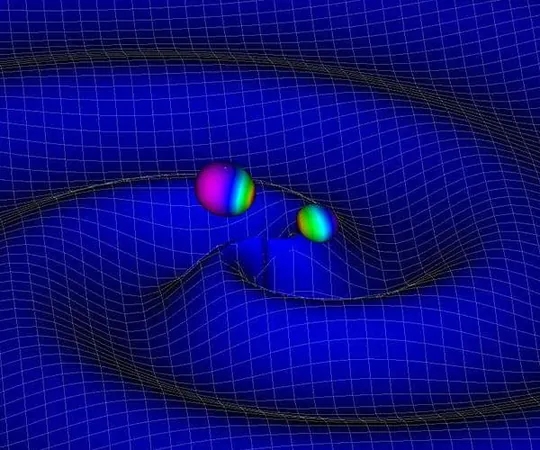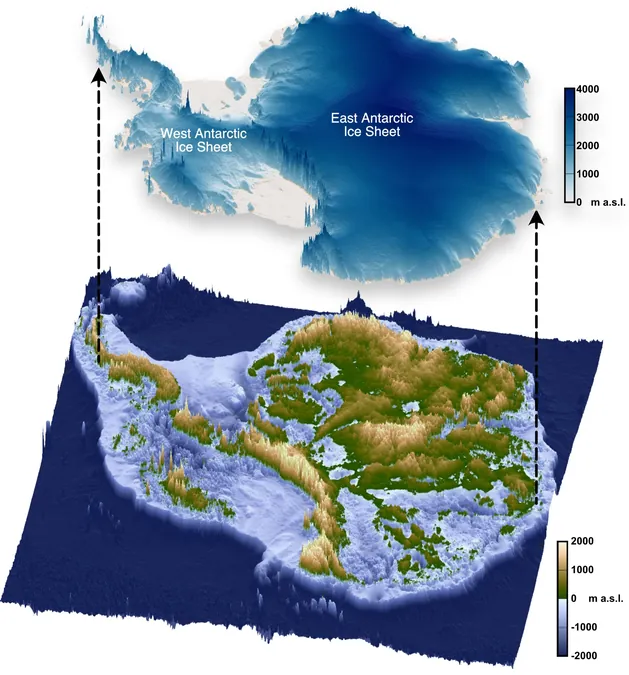
Unlocking the Universe: How Black Holes Could Serve as Natural Supercolliders
2025-06-04
Author: Wei Ling
Revolutionary Insights from Johns Hopkins Study
In a groundbreaking revelation, a recent study from Johns Hopkins University suggests that supermassive black holes might offer a cost-effective alternative to traditional particle colliders in our quest to uncover the hidden secrets of the universe. As federal funding for research faces cuts, these colossal cosmic entities could become the new frontier for studying dark matter and elusive particles.
The Struggle of Particle Physics
Current facilities like the Large Hadron Collider (LHC) are seen as monumental investments—both in terms of time and money. The LHC, the largest and most powerful particle accelerator globally, requires billions in funding and years of construction. Numerous scientists hope it will finally yield dark matter particles, but success has been elusive. Joseph Silk, a co-author of the study, highlights a shift in focus: instead of waiting for next-generation supercolliders that may take $30 billion and decades to build, nature itself could be revealing answers through massive black holes.
Collisions at Cosmic Speeds
Traditionally, particle colliders work by smashing protons and other particles at nearly light speed, exposing the intricacies of matter itself. This process yields high-energy flashes and debris that may unveil new particles, including those suspected to make up dark matter. The LHC has already made significant contributions, influencing not just physics but the development of the internet, cancer treatments, and leading-edge computing technologies.
Harnessing the Power of Black Holes
But what if the solutions lie in the depths of the universe? The study indicates that black holes are not merely cosmic vacuum cleaners; they can harness incredible energy from their rapid spinning. These giant entities create powerful jets that expel plasma, resulting in chaotic collisions of particles, potentially mimicking the very processes we replicate on Earth with particle colliders.
An Unexpected Path to Discovery
"If supermassive black holes indeed collide protons at high energies, we might detect these signals on Earth," Silk elaborates. Observatories tracking cosmic phenomena like supernova explosions could possibly measure these high-energy particles as they stream toward Earth—a culmination of nature's own 'particle collider' at work.
Limitless Energies Await
The study unveils the potential for these cosmic interactions to generate particles with energy levels comparable to those produced by the most advanced supercolliders. As particles are drawn into a black hole, some escape and are accelerated to extraordinary energies, opening new avenues for physics research.
Next Steps in Cosmic Exploration
To capture these high-energy particles, scientists propose utilizing existing observatories like the IceCube Neutrino Observatory. These facilities are already engaged in tracking cosmic events, positioning them perfectly to hunt for this unique evidence.
An Exciting Frontier in Science
In this cosmic race, black holes stand out as distant but potent sources of knowledge. Silk states, "While black holes are far away, the cosmic particles they create will reach us on Earth." This innovative perspective could usher in a new era of particle physics by integrating astronomical discoveries with traditional methods—bringing us one step closer to understanding the universe's greatest mysteries.



 Brasil (PT)
Brasil (PT)
 Canada (EN)
Canada (EN)
 Chile (ES)
Chile (ES)
 Česko (CS)
Česko (CS)
 대한민국 (KO)
대한민국 (KO)
 España (ES)
España (ES)
 France (FR)
France (FR)
 Hong Kong (EN)
Hong Kong (EN)
 Italia (IT)
Italia (IT)
 日本 (JA)
日本 (JA)
 Magyarország (HU)
Magyarország (HU)
 Norge (NO)
Norge (NO)
 Polska (PL)
Polska (PL)
 Schweiz (DE)
Schweiz (DE)
 Singapore (EN)
Singapore (EN)
 Sverige (SV)
Sverige (SV)
 Suomi (FI)
Suomi (FI)
 Türkiye (TR)
Türkiye (TR)
 الإمارات العربية المتحدة (AR)
الإمارات العربية المتحدة (AR)